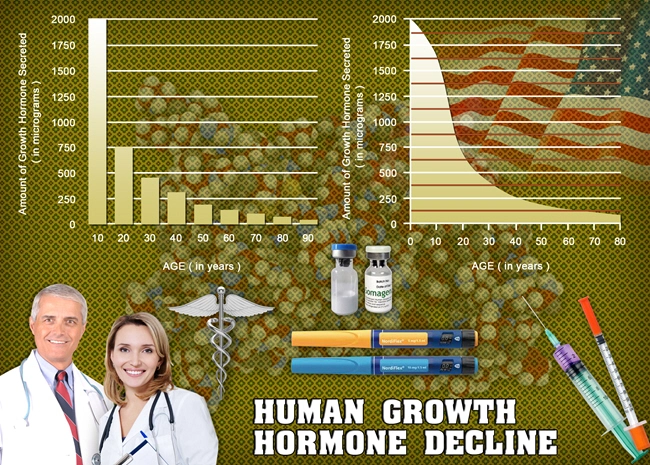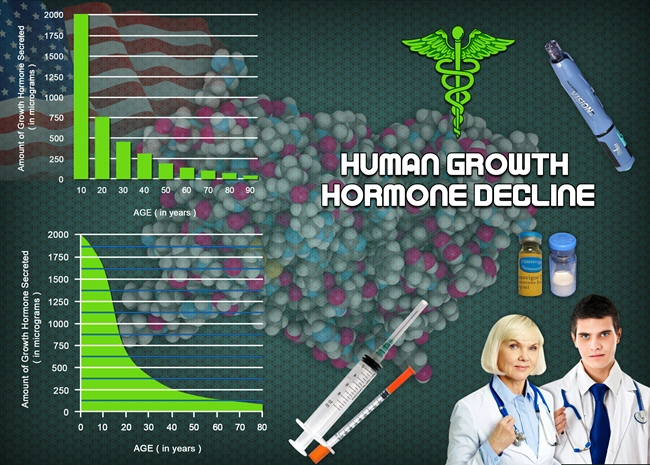
Introduction
Erectile dysfunction (ED) is a prevalent concern among American men, affecting millions and often leading to significant distress and a diminished quality of life. While lifestyle factors such as diet, exercise, and stress are commonly discussed in relation to ED, the role of genetics in this condition is less understood but equally important. This article delves into the genetic underpinnings of erectile function, exploring whether some men are genetically predisposed to experiencing soft erections.
The Genetic Basis of Erectile Function
Erectile function is a complex physiological process involving the coordinated action of the nervous system, vascular system, and hormonal pathways. Recent research has begun to uncover the genetic factors that may influence this process. Studies have identified several genes that play a role in the regulation of blood flow, nerve function, and hormone levels, all of which are critical for achieving and maintaining an erection.
One such gene is the endothelial nitric oxide synthase (eNOS) gene, which is responsible for producing nitric oxide, a key molecule in the relaxation of blood vessels necessary for an erection. Variations in this gene have been linked to an increased risk of ED. Similarly, the angiotensin-converting enzyme (ACE) gene, which affects blood pressure regulation, has also been associated with erectile function.
Genetic Predispositions and ED Risk
While genetics can predispose individuals to certain health conditions, it is important to note that they do not act in isolation. Environmental and lifestyle factors can significantly influence the expression of genetic predispositions. For instance, a man with a genetic variant that increases his risk of ED may never develop the condition if he maintains a healthy lifestyle.
However, for those with a genetic predisposition, the risk of developing ED can be higher. Research has shown that men with a family history of ED are more likely to experience the condition themselves, suggesting a hereditary component. This familial link underscores the importance of understanding one's genetic background and taking proactive steps to mitigate risk factors.
The Role of Genetic Testing
Advancements in genetic testing have made it possible for men to gain insights into their genetic predispositions for various health conditions, including ED. Genetic testing can identify specific variants that may increase the risk of developing ED, allowing for personalized prevention and treatment strategies.
For American men considering genetic testing, it is crucial to consult with a healthcare provider who can interpret the results and provide guidance on how to manage any identified risks. Genetic counseling can also be beneficial, offering support and information to help individuals make informed decisions about their health.
Lifestyle Interventions and Genetic Predispositions
While genetics can influence the likelihood of developing ED, lifestyle interventions remain a cornerstone of prevention and management. Regular physical activity, a balanced diet, and stress management can all contribute to improved erectile function, even in those with a genetic predisposition.
For men with a genetic risk, these lifestyle changes can be particularly impactful. Engaging in regular exercise, for example, can enhance cardiovascular health and improve blood flow, counteracting the effects of genetic variants that may impair vascular function. Similarly, maintaining a healthy weight and managing conditions such as diabetes and hypertension can mitigate the impact of genetic predispositions on erectile function.
Conclusion
Understanding the genetic factors that contribute to erectile dysfunction is a crucial step in addressing this common issue among American men. While genetics can predispose some men to soft erections, the interplay between genetic and environmental factors means that lifestyle interventions can play a significant role in prevention and management. By combining genetic insights with proactive health strategies, men can take control of their sexual health and overall well-being.
Contact Us Today For A Free Consultation
Dear Patient,
Once you have completing the above contact form, for security purposes and confirmation, please confirm your information by calling us.
Please call now: 1-800-380-5339.
Welcoming You To Our Clinic, Professor Tom Henderson.

- Decoding the Enigma of Soft Erections: A Comprehensive Exploration [Last Updated On: February 25th, 2025] [Originally Added On: February 25th, 2025]
- Unveiling the Complexities behind Reduced Virility: A Journey into the Science of Soft Erections [Last Updated On: February 26th, 2025] [Originally Added On: February 26th, 2025]
- Broadening the Masculine Spectrum: Navigating Soft Erections Confidently [Last Updated On: February 27th, 2025] [Originally Added On: February 27th, 2025]
- Transforming Sexual Health: Enhancing Male Virility through Holistic Lifestyle Adjustments [Last Updated On: February 28th, 2025] [Originally Added On: February 28th, 2025]
- Unheard Voices: Understanding and Navigating Soft Erections [Last Updated On: February 28th, 2025] [Originally Added On: February 28th, 2025]
- Understanding the Nexus: Psychological Stress and Its Impact on Erection Function [Last Updated On: March 1st, 2025] [Originally Added On: March 1st, 2025]
- Demystifying Men's Health: Understanding Erectile Resilience and its Multifaceted Dimensions [Last Updated On: March 2nd, 2025] [Originally Added On: March 2nd, 2025]
- Enhancing Erectile Function Through Exercise: Understanding the Role of Physical Activity in Improving Sexual Health and Erection Quality [Last Updated On: March 3rd, 2025] [Originally Added On: March 3rd, 2025]
- Nutrition's Role in Enhancing Male Erectile Function and Health [Last Updated On: March 4th, 2025] [Originally Added On: March 4th, 2025]
- Soft Erections in Aging Men: Causes, Diagnosis, and Effective Management Strategies [Last Updated On: March 5th, 2025] [Originally Added On: March 5th, 2025]
- Exploring the Link Between Sleep Quality and Erectile Function in Men [Last Updated On: March 5th, 2025] [Originally Added On: March 5th, 2025]
- Managing Mild Erectile Dysfunction: Strategies for Enhancing Intimacy and Well-being [Last Updated On: March 6th, 2025] [Originally Added On: March 6th, 2025]
- Enhancing Male Sexual Health: The Role of Weight Loss in Combating Soft Erections [Last Updated On: March 6th, 2025] [Originally Added On: March 6th, 2025]
- Optimizing Male Hormones for Sexual Health: Balancing Testosterone and Estrogen Dynamics [Last Updated On: March 7th, 2025] [Originally Added On: March 7th, 2025]
- The Vascular Link: Understanding Blood Flow in Erectile Dysfunction and Vascular Health [Last Updated On: March 8th, 2025] [Originally Added On: March 8th, 2025]
- The Intersection of Cardiovascular Health and Erectile Function: Lifestyle Strategies for Men's Health [Last Updated On: March 9th, 2025] [Originally Added On: March 9th, 2025]
- Enhancing Male Sexual Health: The Role of Meditation and Mindfulness in Combating Soft Erections [Last Updated On: March 9th, 2025] [Originally Added On: March 9th, 2025]
- Debunking Myths: The Truth About Soft Erections in American Men [Last Updated On: March 14th, 2025] [Originally Added On: March 12th, 2025]
- Navigating the Impact of Medications on Male Sexual Health: Understanding Drug-Induced Erectile Challenges [Last Updated On: March 13th, 2025] [Originally Added On: March 13th, 2025]
- Mastering Stress: Strategies to Enhance Male Sexual Performance and Combat Soft Erections [Last Updated On: March 15th, 2025] [Originally Added On: March 15th, 2025]
- Smoking's Impact on Erectile Health: Understanding and Overcoming Soft Erections [Last Updated On: March 17th, 2025] [Originally Added On: March 17th, 2025]
- Diagnosing Soft Erections: Comprehensive Approaches for American Males' Urological Health [Last Updated On: March 18th, 2025] [Originally Added On: March 18th, 2025]
- Pelvic Floor Exercises: Enhancing Men's Sexual Health and Overall Wellness [Last Updated On: March 18th, 2025] [Originally Added On: March 18th, 2025]
- Alcohol's Impact on Erection Quality: Insights and Management Strategies [Last Updated On: March 18th, 2025] [Originally Added On: March 18th, 2025]
- Soft Erections in Young Men: Causes, Impacts, and Holistic Management Strategies [Last Updated On: March 18th, 2025] [Originally Added On: March 18th, 2025]
- Vitamins and Minerals: Enhancing Erection Quality in American Men Naturally [Last Updated On: March 19th, 2025] [Originally Added On: March 19th, 2025]
- Herbal Remedies for Enhancing Erectile Health in American Males [Last Updated On: March 19th, 2025] [Originally Added On: March 19th, 2025]
- Understanding and Managing Soft Erections: Causes, Diagnosis, and Treatment Options [Last Updated On: March 20th, 2025] [Originally Added On: March 20th, 2025]
- Counseling's Role in Treating Soft Erections: A Holistic Approach [Last Updated On: March 20th, 2025] [Originally Added On: March 20th, 2025]
- Soft Erections: Understanding, Communicating, and Overcoming ED Together [Last Updated On: March 21st, 2025] [Originally Added On: March 21st, 2025]
- Soft Erections and Mental Health: Strategies for American Men [Last Updated On: March 21st, 2025] [Originally Added On: March 21st, 2025]
- Work Stress Impact on American Males' Sexual Health: Strategies and Solutions [Last Updated On: March 21st, 2025] [Originally Added On: March 21st, 2025]
- Managing Soft Erections: Diet, Exercise, Stress, Sleep, and Medical Care [Last Updated On: March 22nd, 2025] [Originally Added On: March 22nd, 2025]
- Understanding Soft Erections: Causes, Impacts, and Holistic Treatment Options for American Males [Last Updated On: March 23rd, 2025] [Originally Added On: March 23rd, 2025]
- Nitric Oxide's Role in Erections: Understanding and Enhancing Function [Last Updated On: March 23rd, 2025] [Originally Added On: March 23rd, 2025]
- Managing Soft Erections: Behavioral Strategies for Improved Sexual Health [Last Updated On: March 23rd, 2025] [Originally Added On: March 23rd, 2025]
- Exploring Alternative Medicine for Enhanced Erectile Health in American Males [Last Updated On: March 23rd, 2025] [Originally Added On: March 23rd, 2025]
- Overcoming Soft Erections: Success Stories and Strategies for American Men [Last Updated On: March 23rd, 2025] [Originally Added On: March 23rd, 2025]
- Redefining Sexual Success: Embracing Vulnerability and Holistic Health for Confidence [Last Updated On: March 23rd, 2025] [Originally Added On: March 23rd, 2025]
- Soft Erections vs. Erectile Dysfunction: Understanding Differences and Solutions for Men [Last Updated On: March 24th, 2025] [Originally Added On: March 24th, 2025]
- Physical Therapy's Role in Treating Soft Erections Among American Males [Last Updated On: March 24th, 2025] [Originally Added On: March 24th, 2025]
- PDE5 Inhibitors: Revolutionizing ED Treatment for American Males [Last Updated On: March 24th, 2025] [Originally Added On: March 24th, 2025]
- Innovative Technologies and Therapies for Treating Soft Erections in American Males [Last Updated On: March 24th, 2025] [Originally Added On: March 24th, 2025]
- Obesity and Soft Erections: Enhancing Sexual Health Through Weight Management [Last Updated On: March 24th, 2025] [Originally Added On: March 24th, 2025]
- Exploring Alternative Therapies for Erectile Dysfunction: A Holistic Approach [Last Updated On: March 24th, 2025] [Originally Added On: March 24th, 2025]
- Biofeedback Therapy: Enhancing Erectile Control in American Males with Soft Erections [Last Updated On: March 25th, 2025] [Originally Added On: March 25th, 2025]
- Economic Impact of Soft Erections on American Men's Quality of Life and Finances [Last Updated On: March 25th, 2025] [Originally Added On: March 25th, 2025]
- Heart Health and Erections: Understanding the Cardiovascular Connection [Last Updated On: March 25th, 2025] [Originally Added On: March 25th, 2025]
- Prostate Health's Impact on Soft Erections: Insights and Management for American Men [Last Updated On: March 25th, 2025] [Originally Added On: March 25th, 2025]
- Managing Soft Erections: Preparing for Doctor Visits and Understanding Treatment Options [Last Updated On: March 25th, 2025] [Originally Added On: March 25th, 2025]
- Chronic Inflammation's Impact on Sexual Health: Mechanisms and Management Strategies [Last Updated On: March 25th, 2025] [Originally Added On: March 25th, 2025]
- Understanding and Treating Soft Erections: Causes, Diagnosis, and Options for American Males [Last Updated On: March 26th, 2025] [Originally Added On: March 26th, 2025]
- Sleep Disorders and Soft Erections: Impacts and Management Strategies for Men [Last Updated On: March 26th, 2025] [Originally Added On: March 26th, 2025]
- Soft Erections and Metabolic Syndrome: A Critical Link in American Males [Last Updated On: March 26th, 2025] [Originally Added On: March 26th, 2025]
- Understanding and Overcoming Soft Erections: Impact, Intimacy, and Solutions [Last Updated On: March 26th, 2025] [Originally Added On: March 26th, 2025]
- Digital Health Solutions Transforming Erectile Health Management for American Men [Last Updated On: March 26th, 2025] [Originally Added On: March 26th, 2025]
- Stress Management Techniques to Improve Erectile Function in American Males [Last Updated On: March 26th, 2025] [Originally Added On: March 26th, 2025]
- Cardiovascular Exercise Enhances Erection Quality in American Males [Last Updated On: March 26th, 2025] [Originally Added On: March 26th, 2025]
- Environmental Toxins and Their Impact on Male Erectile Health in America [Last Updated On: March 26th, 2025] [Originally Added On: March 26th, 2025]
- Understanding Soft Erections: Causes, Physiology, and Treatment Options for American Men [Last Updated On: March 27th, 2025] [Originally Added On: March 27th, 2025]
- Hormonal Health and Erections: A Comprehensive Guide for American Men [Last Updated On: March 27th, 2025] [Originally Added On: March 27th, 2025]
- Medication Side Effects and Soft Erections: Causes, Management, and Solutions [Last Updated On: March 27th, 2025] [Originally Added On: March 27th, 2025]
- Innovative Solutions for Erection Challenges: Vacuum Pumps and Beyond [Last Updated On: March 27th, 2025] [Originally Added On: March 27th, 2025]
- Understanding Soft Erections: Causes, Treatments, and Breaking Stigmas [Last Updated On: March 28th, 2025] [Originally Added On: March 28th, 2025]
- Superfoods Boost Vascular Health, Enhancing Erectile Function in American Males [Last Updated On: March 28th, 2025] [Originally Added On: March 28th, 2025]
- Managing Soft Erections: A Mindfulness Approach for American Men [Last Updated On: March 28th, 2025] [Originally Added On: March 28th, 2025]
- Overcoming Soft Erections: Psychological Strategies and Self-Esteem Enhancement [Last Updated On: March 29th, 2025] [Originally Added On: March 29th, 2025]
- Enhancing Sexual Stamina and Managing Soft Erections: Techniques and Strategies [Last Updated On: March 29th, 2025] [Originally Added On: March 29th, 2025]
- Sedentary Lifestyles and Erection Quality: Benefits of Physical Activity for American Males [Last Updated On: March 30th, 2025] [Originally Added On: March 30th, 2025]









